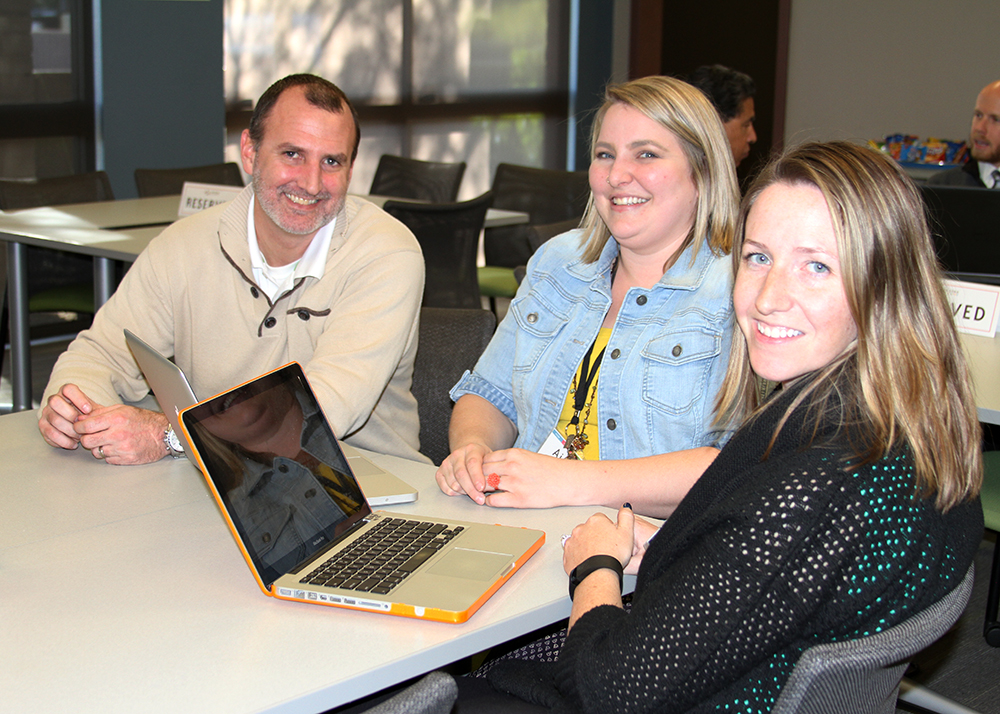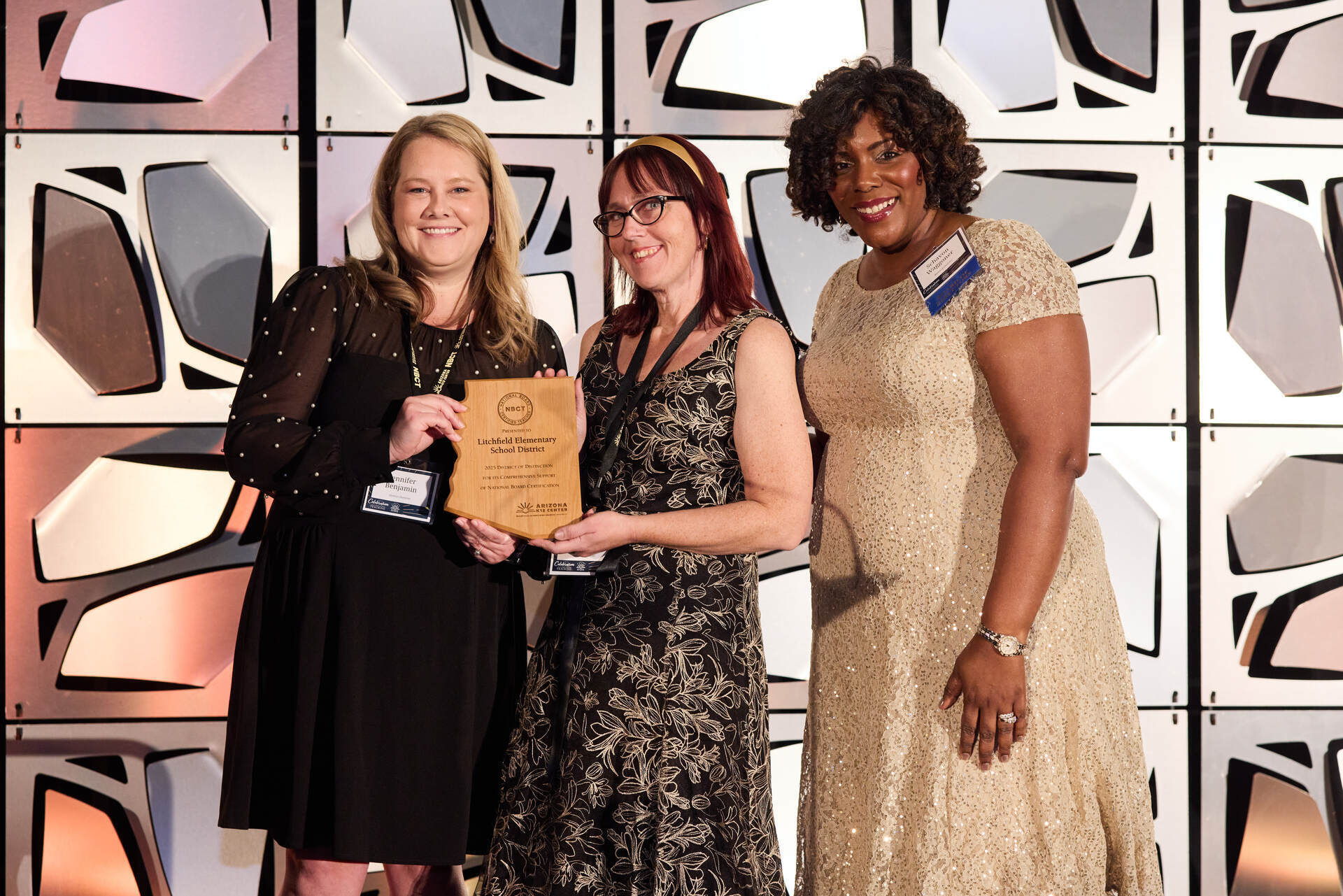January 22, 2016
Sustained Mentor Training Advances Teacher Support
Mentors enhance their abilities by engaging in professional development.
The phrase "hard work pays off" may seem cliché, until it’s your reality. According to participating master teachers, the support they receive from the Arizona K12 Center and the New Teacher Center surrounding mentoring is invaluable — and it’s apparent now, more than ever before, as they wrap up the first half of The Mentor Academy Series Year Two and prepare for 2016.
The Arizona Master Teacher Program places experienced, accomplished teachers into leadership roles in schools as mentors or coaches for their peers. To best serve the mentors and mentees, Arizona K12 Center master teachers receive continuous professional development.
As they concluded training before winter break, participants were asked to reflect on their progress since The Mentor Academy Series Year One. In the second year of training, the focus progresses, shifting from instructional mentoring to social and emotional learning.
Not only do participating mentors say their mentees, new teachers, are more confident during their second year, but also they claim they feel more capable as mentors, after shaking off the first-year jitters.
“For me, the first year as a mentor was very overwhelming because I was just beginning to understand what exactly my role entailed. Everything was new and I was learning all the mentoring standards,” explains Aidan Balt, an Arizona K12 Center Master Teacher in the Maricopa Unified School District.
Balt, who is an advanced-placement English teacher at Maricopa High School, is not alone in her explanation of the mentor metamorphosis.
Shonti Land is an Arizona K12 Center Master Teacher from the Somerton Unified School District. He says, although one might be a great educator, it doesn’t guarantee he or she will be an outstanding mentor. Instead, he suggests, it takes great focus.
“You have to take your skills as an educator, but then motivate and change the thinking of your mentees. Sometimes that’s easier said than done,” Land explains. “What the Arizona K12 Center and the New Teacher Center do is get you to grasp how to impact your mentees, whether it’s through language or metacognition. Then, in year two, you start to reflect on your own process.”
Through formal training with the Arizona K12 Center, both the mentors and mentees are impacted. Personal reflection leads to better interactions with peers.
“In year one, you’re in the trenches and you find yourself thinking your work won’t make a difference. The minute the teachers come back for year two, you see your work in action and it makes the hard work worth it. As year two began, I also started to reflect on my own practice as a teacher, which makes it possible to model and showcase ideas for other teachers,” Balt admits.
Once mentor strategies become second nature, the compression of social and emotional learning is imperative. Teachers must be able to relate to their students and peers, claims Tomasita Villarreal-Carman, Ed.D., a Senior Consultant for the New Teacher Center.
“The social and emotional learning framework establishes a culture that asks questions like, ‘What is best for the good of the whole? How can we all work together to model for our students what we expect from them and how they are all going to be a part of the whole?’” Dr. Villarreal-Carman says.
“Social and emotional learning is critical because we’re trying to help teachers understand there’s more to teaching than ABCs and 123s. We have to be able to help students in many other ways,” Land explains. “I hate the old adage that teachers can’t be friends with their students because we must be friendly. There’s a social aspect to what we do. We must be age appropriate, of course, but by the same token we need to look at them [our students] as human beings and not a piece of data.”
According to Dr. Villarreal-Carman, the evolution from year one to year two of the Arizona Master Teacher Program is astronomical.
“Social and emotional learning is the foundational piece that gives teachers and mentors the framework and tools to look at equity from a proactive stance. It starts with the self, moves on with the interpersonal, and then holds everyone accountable by focusing on ethical and constructive choices and behaviors,” Dr. Villarreal-Carman says. “In year two, teachers and mentors are ready to see how what happens in their classroom will impact the learning community in their schools. They are ready to see the ‘bigger picture’ and how they impact it. You see mentors sigh as they are introduced to the social and emotional learning framework and recognize how this framework is going to set the stage for their work on issues of equity and other challenging concepts all teachers deal with beyond the instructional concepts.”
Learn more about the Arizona Master Teacher Program by visiting the Arizona K12 Center website.











